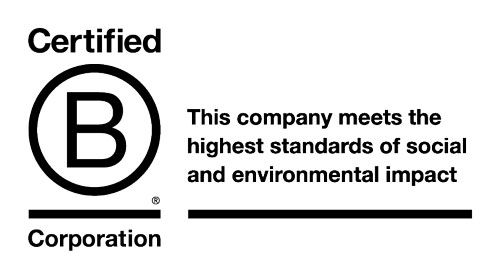In today’s rapidly evolving business world, sustainability is no longer optional—it’s essential. Not only are consumers, investors, and employees demanding responsible business practices, but governments worldwide are enforcing stricter regulations to ensure companies positively impact the environment, society, and the economy. For startups, creating a business that is legally sustainable means adopting a comprehensive approach that integrates Environmental, Social, and Governance (ESG) principles into your business model.
This step-by-step guide will help you build a sustainable startup that adheres to environmental, social, and governance best practices while remaining compliant with all relevant laws and regulations. By following this process, you’ll ensure your business thrives, attracts responsible investors, and positively impacts the world.
Step 1: Understand What Makes a Sustainable Startup
A sustainable startup goes beyond just making profits. It ensures that the business practices align with ESG principles, which means operating in a way that benefits the environment, society, and governance structures. From a legal perspective, a sustainable business operates in full compliance with all regulations while striving to meet high environmental, social, and governance standards.
Benefits of building a legally sustainable startup:
- Long-term viability: Compliance with regulations ensures your startup can continue to operate smoothly.
- Attracting investors: Investors prioritise companies that demonstrate measurable ESG impact.
- Building consumer trust: Transparency and ethical practices resonate with today’s conscious consumers.
Step 2: Incorporate Sustainability into Your Business Model
Sustainability isn’t just a buzzword; it’s a central component of your business strategy. Here’s how to integrate ESG principles into your startup’s core operations:
1. Environmental Responsibility
Start by aligning your business practices with environmental regulations while minimising your ecological footprint.
- Adopt eco-friendly practices: Follow the Environmental Protection Act and ensure your business minimises emissions, reduces waste, and transitions to renewable energy sources.
- Track and report emissions: Under the National Greenhouse and Energy Reporting Act (NGERA), businesses must report on their carbon emissions. Start tracking your carbon footprint to reduce emissions and comply with legal requirements.
- Green supply chains: Collaborate with suppliers who follow sustainable practices, such as using recyclable materials and minimising waste.
2. Social Impact and Fairness
Social responsibility means ensuring that your startup benefits society in a positive way. Follow these steps to comply with Australian laws and promote inclusivity and fairness:
- Pay fair wages: The Fair Work Act 2009 mandates fair wages and safe working conditions for employees. Make sure your business complies by offering ethical compensation and providing safe workplaces.
- Foster diversity and inclusion: Comply with the Equal Opportunity Act to ensure your business offers equal opportunities for all, promoting a diverse workforce.
- Community engagement: Get involved in your community, whether by supporting local initiatives or tackling social challenges with your products or services.
- Modern slavery policies: Ensure your business is aligned with efforts to tackle modern slavery by assessing your supply chain for any risk of forced labour or human trafficking.
3. Governance and Transparency
Effective governance ensures that your business operates ethically and complies with all legal standards. Here’s how you can build transparency and accountability:
- Be transparent: Provide clear, honest communication about your operations and financial reporting.
- Establish internal controls: Implement regular audits and compliance checks to ensure your startup adheres to all regulations.
- Set up a code of conduct: Promote ethical behaviour and integrity across your team by establishing clear rules and guidelines.
Step 3: Ensure Legal Compliance at All Levels
As you integrate ESG principles, it’s critical to comply with local, national, and international regulations that affect your startup. Consider the following key areas of compliance:
- Corporate compliance: Make sure your business complies with corporate laws, including the Corporations Act 2001 and relevant ASX Listing Rules if you are publicly listed.
- Tax and financial laws: Stay up to date with tax regulations and ensure your business meets reporting obligations under Australian tax laws.
- Workplace health and safety: Ensure your startup complies with workplace safety laws and provides a safe working environment for employees.
- Data protection: Comply with the Privacy Act 1988 to ensure you handle customer data responsibly.
Step 4: Obtain Relevant Certifications to Enhance Credibility
Certifications not only validate your sustainability efforts but also improve your business’s credibility. Some important certifications include:
- B Corp certification: This global standard for businesses that demonstrate high social and environmental performance requires passing an assessment to prove your commitment to legal compliance and sustainability. Becoming B Corp will show that your startup is legally sustainable and ethically driven.
- Government grants: In Australia, there are various funding options for green businesses. For example, the Clean Energy Finance Corporation supports clean energy projects. These grants usually come with compliance and reporting obligations to ensure your business meets sustainability standards.
Step 5: Build a Risk Management Framework
Good governance also involves identifying and managing risks. Consider potential risks related to climate change, regulatory changes, or social challenges. Build a risk management strategy to address these concerns:
- Identify potential risks: Look at financial, legal, or reputational risks that may affect your business’s sustainability.
- Mitigate risks: Once risks are identified, develop strategies to minimise their impact and ensure business continuity.
Step 6: Monitor and Adapt to Changing Regulations
Environmental, social, and governance regulations are evolving, so it’s important to stay up-to-date. Regularly review your compliance processes to ensure your startup remains in line with the latest legal requirements.
- Ongoing monitoring: Schedule regular audits to assess your business’s performance against ESG goals and legal requirements.
- Adapt to new regulations: Keep an eye on new legislation and global trends in sustainability to ensure your startup can adjust and remain compliant.
Step 7: Communicate Your Efforts and Build Trust
As your startup grows, keep your stakeholders informed about the actions you’re taking to maintain legal sustainability:
- Disclose ESG performance: Be transparent with investors, employees, and consumers by publicly disclosing your environmental and social performance.
- Engage stakeholders: Communicate regularly with all your stakeholders to show how you’re addressing ESG concerns and fulfilling your legal obligations.
Final Thoughts: Building a Legally Sustainable Startup
Building a sustainable startup isn’t just about reducing your environmental impact. It’s about ensuring your business complies with laws, operates ethically, and contributes positively to society and the environment. By integrating ESG principles into your business model, you’re positioning your startup for long-term success while making a meaningful contribution to the world around you.
Follow these steps to build a legally sustainable startup that thrives, grows responsibly, and meets the needs of today’s conscious consumers, investors, and employees. With the right approach, your business can be both a profitable venture and a force for good.
At Allied Legal, our specialised lawyers can guide you through the complexities of building a legally sustainable startup, ensuring compliance with ESG principles and helping you navigate the legal requirements for long-term success.






